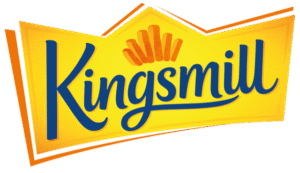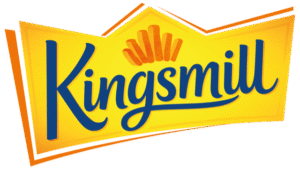https://theworldfinancialforum.com/participate/

The owner of Kingsmill has agreed to buy its rival Hovis in a deal that would create the UK’s biggest bread brand if the competition regulator approves it, but also put jobs at risk.
The deal comes after decades of decline in the popularity of the packaged sliced loaf, with Hovis, owned by the private equity firm Endless, and its rival Kingsmill – part of Associated British Foods – struggling to get out of the red for some years.
ABF, which also owns the Primark clothing chain, said the tie-up would combine the production and distribution activities of the two businesses, which is expected to lead to roles being shed.
The potential merger between the UK’s second- and third-largest bread brands will attract scrutiny from the competition authorities which it is understood could take a year. The Competition and Markets Authority (CMA) will have to decide if the brands face sufficient rivalry on price and quality from supermarket own labels and other options as well as the UK’s current market leader, Warburtons.
Hovis’s directors said in accounts recently published at Companies House that they thought any deal was “unlikely to be concluded” before September next year and that scrutiny was likely to continue until at least then.
Sales at Hovis, which employs 2,925 people, fell almost 9% to £447m in the year to 28 September 2024 as pre-tax losses widened to £4.7m from a loss of £3.6m a year before after £530,000 in one-off costs, the majority of which related to restructuring.
It said it had been battling “extreme price volatility across key raw materials” during the year.
Meanwhile, ABF’s bakery division, Allied Bakeries – which includes Kingsmill, Allinson’s and Sunblest – incurs annual losses of about £30m despite sales of about £400m, according to analysts at Panmure Liberum.
after newsletter promotion
Both businesses are facing strong competition from the family-owned Warburtons, now the UK’s biggest bread brand, which has gained a bigger slice of the market through innovation – from giant crumpets to seeded flatbreads. It is now understood to account for more than a quarter of packaged bread sold.
On 15 August 2025, Associated British Foods (ABF)—the parent company of Kingsmill, Allied Bakeries, Primark, Twinings, and more—announced a landmark agreement to acquire Hovis from private equity owner Endless. Though reports vary slightly, the deal is valued between £70 million and £75 million, set to reshape the UK’s bread aisle landscape. The TimesThe GuardianReuters

The Combined Might of Two Storied Brands
This transaction merges two of Britain’s most iconic bread brands—Kingsmill and Hovis—creating a new, dominant force in the branded packaged bread segment. Estimates suggest the combined market share would hit around 40%, surpassing current market leader Warburtons. The TimesThe GuardianReuters
Hovis, with roots stretching back to the 1880s, has struggled in recent years—its 2024 sales declined roughly 9%, with pre-tax losses widening to £4.7 million on a sales base of £447 million. The GuardianBakeryAndSnacks.comFoodBev Media Allied Bakeries (Kingsmill, Sunblest, Allinson’s) has also seen persistent losses—around £30 million—amid weakening demand for mass-market, pre-sliced loaves. The TimesProactiveinvestors UKBakeryAndSnacks.com
Efficiency, Innovation — and Job Worries
ABF’s CEO George Weston frames the acquisition as a vital step toward building a “profitable and sustainable” bakery business that can invest in innovation, streamline operations, and deliver greater consumer choice. The TimesBakery InfoReuters Analysts point to operational synergies—especially in production, distribution, and procurement—that could unlock cost savings of as much as £50–55 million annually. The GuardianBakeryAndSnacks.com+1Sky NewsReutersFoodBev Media
Still, the deal raises critical concerns over jobs. Unite, the union representing workers at both companies, has warned that the restructuring poses real risks to employment and labor conditions. The Guardian
Regulatory Hurdles Ahead
The acquisition is expected to draw scrutiny from the Competition and Markets Authority (CMA). A combined entity with approximately 40% market share could diminish consumer choice and edge out competitors, especially given the power of supermarket own-label breads, which already account for more than 40% of sales. The GuardianReutersBakeryAndSnacks.com+1The TimesArchyde
Analysts caution, however, that regulatory tolerance may rise if one of the merged companies is viewed as a “failing firm” whose collapse would reduce competition regardless. Moreover, the evolving political backdrop—with pressure on regulators to support economic growth—may influence the CMA’s approach. The GuardianArchydeBakeryAndSnacks.com+1Sky News
Strategic Imperative in a Sluggish Market
The broader bread category in the UK is under siege. Consumer shifts toward low‑carb diets, gluten‑free alternatives, artisan sourdough, and convenience foods have chipped away at demand for standard sliced loaves. The traditional market has shrunk significantly over the past decades. The GuardianBakeryAndSnacks.comBaking Europe
Against this backdrop, consolidation emerges as one of the few viable strategies for scale, margin restoration, and reinvestment in innovation. ABF’s move mirrors a broader trend across the European food sector, where companies are consolidating to withstand mounting pressures. Baking EuropeFoodBev Media
What This Means for Consumers
Potential Upside: Greater efficiency could enable ABF to reinvest in product innovation—from high‑fibre loaves and sourdough to better packaging and value-added formats. In theory, this could translate into more consumer choice and stabilised prices.
Potential Downside: With two major brands under one roof, there’s a risk of diminished competition—potentially slower innovation or pricing pressure over time.
Job Security: Communities and front-line staff may feel the greatest impact. Closures, role consolidations, or distribution restructuring could affect thousands of workers.
In Summary
ABF’s agreement to acquire Hovis—potentially in a £75 million deal—marks a turning point in the UK bread industry. By uniting Kingsmill with Hovis, ABF aims to forge the largest branded bread business in the UK while clinging to profitability amid declining volumes and rising costs. The deal could leverage £50–55 million in efficiencies, pave the way for innovation, and secure shareholder value.
Yet the merger isn’t without risks: regulatory scrutiny, job impact, and the erosion of market competition loom large. Whether the CMA clears the deal—and under what conditions—will shape the future of the UK’s bread shelves. In a shrinking market, this consolidation may prove not just strategic, but necessary.